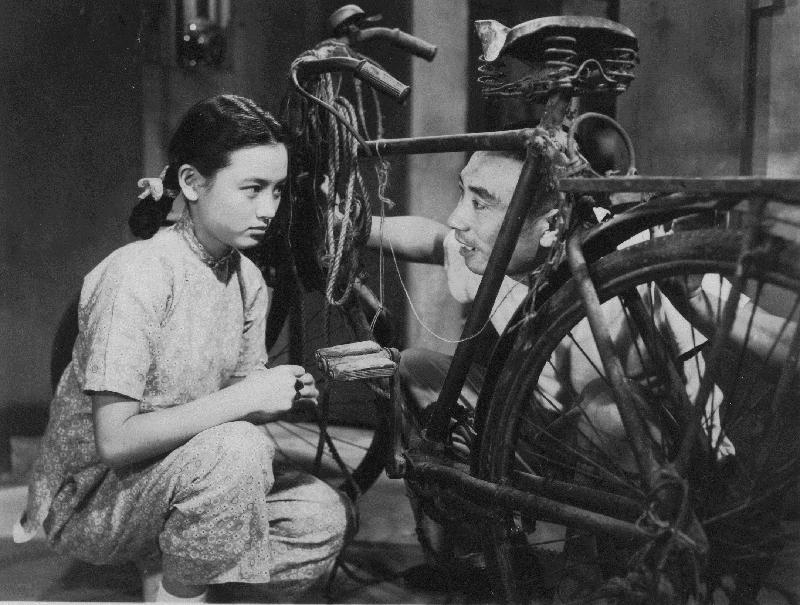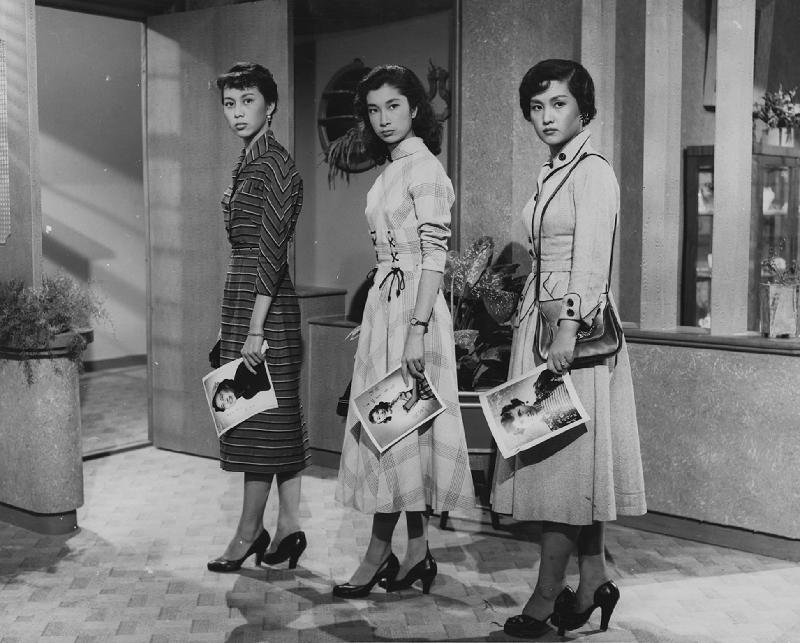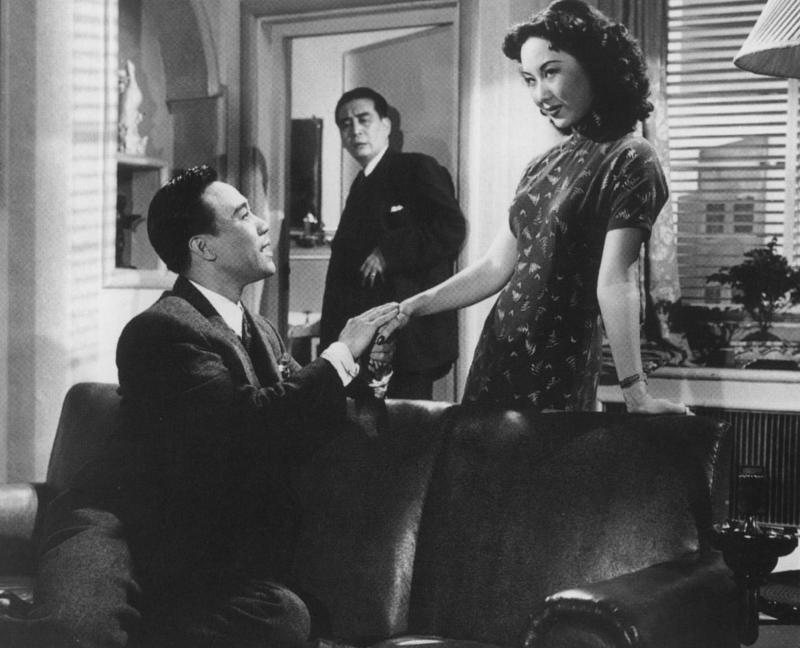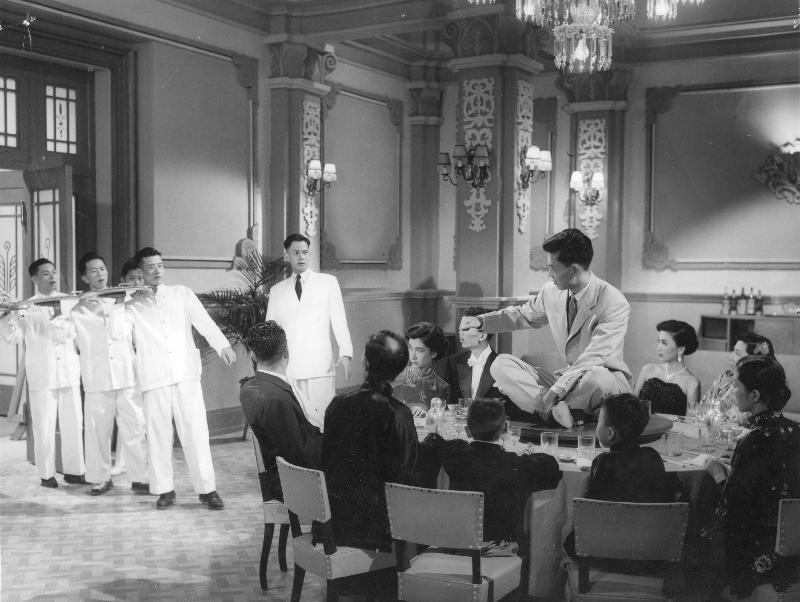The Hong Kong Film Archive (HKFA) of the Leisure and Cultural Services Department will present the latest edition of "The Writer/Director in Focus" series by focusing on director Li Pingqian, a master of Mandarin films, from July 14 to September 30. Guest-curated by film researcher Lau Yam, the programme will screen a selection of 18 films by Li at the HKFA Cinema. Some will be shown at the HKFA for the first time, namely "Bible for Girls" (1934), "The Young Mistress' Fan" (1939), "The Imperial Maid Fei Zhen'e" (1939), "Mother and Son" (1947), "A Strange Woman" (1950), "Girl on the Front Page" (1960) and "The Seaman and the Dancing Girl" (1961).
Li's career ranged from black and white silent films to coloured sound films and from the pre-war and post-war periods to Shanghai and Hong Kong. With nearly 100 films as director and around 25 films as writer, Li's works are as diverse in theme and genre as he himself was versatile – a true virtuoso of the cinema.
Born to a traditional family of scholars in the early 20th century and experiencing the May Fourth Movement in person, Li was brought up in a blend of traditional and modern cultures. His movies about family dramas uphold traditional values, while some of his works express a progressive way of thinking. An adaptation of Oscar Wilde’s "Lady Windermere's Fan", "The Young Mistress' Fan" is Li's earliest extant feature film in a modern setting, which portrays indirect motherly love and strong yet subdued emotions, showcasing Li's style of undramatic storytelling. In "Mother and Son", Li skillfully interweaves the disputes between two generations with the country's condition into the plot. "Our Husband" (1949) is Li's first directorial work in Hong Kong, which he adapted from the Hollywood movie "The Great Lie" (1941). The film features a wife who looks after another woman – a social butterfly who is pregnant with her errant husband’s child – so as to continue her husband’s bloodline. "Parents' Love" (1953) tells of a poor family whose members secretly take part-time jobs to supplement the family income. Rather than being overwrought with sentimentality about sweat and toil, the film realistically depicts the spirit of sacrifice in familial love. "It So Happens to a Woman" (1955) explores the issue of career development among married women through a university graduate played by Hung Sin Nui.
Li's romantic works are entertaining, sometimes containing tragic elements but never excessively. "Three Charming Smiles" (1964) is a classic Chinese folk tale in which Li interestingly tackles all the clichés from a modern perspective, injecting elements of contemporary romantic comedies into the plot. Based on the Shaoxing opera classic, "The Princess Falls in Love" (1962) retains the unique traditions of the art of Shaoxing opera, and together with Li's mise-en-scène and cinematography, the film is refreshingly operatic. Li works with scriptwriter Jin Yong in "The Three Loves" (1956), seamlessly integrating three short stories and portraying a sexual fantasy rarely seen in Hong Kong cinema. "The Green Swan Nightclub" (1958), a hybrid of romance, humour and suspense, features a daughter sneaking into a nightclub to investigate the murder of her father, through which she falls in love with one of the suspects.
Heroines serving the country are a classic Chinese cultural symbol, but their patriotism is portrayed from an unusual variety of perspectives in Li’s works. "The Imperial Maid Fei Zhen'e" features Nancy Chan as Fei Zhen’e, who bravely assassinates a traitor for her country. In "A Strange Woman", Bai Guang intends to help her lover, a revolutionary, to escape from warlords but she then falls into a lust-filled relationship with the head of the secret service. Centred on the ageless tale of the "Theft of Tiger Tally to Save the State of Zhao", "The Peerless Beauty" (1953) follows the patriotic concubine Yu, played by Hsia Moon, who sacrifices herself for the country – a new angle compared with the traditional male perspectives on the same story. The classic women’s film, "Bible for Girls", is a collaboration between Li and another eight directors, and highlights the respective experiences and desires of a group of women at a secondary schoolmate reunion organised by Butterfly Wu.
Li once worked at the Shenzhou Film Company founded by Wang Xuchang, after which his later works maintained the "Shenzhou" characteristics of mixing education and entertainment. "Awful Truth" (1950) depicts all walks of life in the post-war society and the use of foul means to scramble for money, mocking the twisted society of the time. Fu Che in "Tales of the City" (1954) is initially unemployed but later becomes a lottery winner, and the film portrays the ugliness of humans through his ensuing experience. "Laugh, Clown, Laugh" (1960) features Bao Fong, who is laid off and turns to making a living by performing comedy, but as it shames his family he keeps it a secret. Following an unfolding news story, "Girl on the Front Page" recounts the sad life and psychological journey of a young girl, from being charmed to committing a crime, with Li again exposing the dark side of humanity. Li conveys his understanding of society in his vivid portrayal of characters in "The Seaman and the Dancing Girl", telling the story of a daughter who becomes a taxi dancer to feed her family. Director Cheng Bugao’s classic silent film "Spring Silkworms" (1933) which is adapted from the original by Mao Dun, will also be shown for reference.
In addition, three seminars entitled "Subtle Smile Towards the World – Hong Kong Odyssey of a Great Director" (July 14); "Deception by Him and Her – Sex and Otherwise in Li Pingqian's movies" (August 18) and “Between Red and Grey – Individuals and Society in Li Pingqian's Cinematic World” (September 22) will be held at the HKFA Cinema at 4.30pm with Law Kar, Lau Yam, Dr Yau Ching and Dr Lo Wai-luk as speakers. In addition to the seminars, a number of screenings will also be followed by post-screening talks, all conducted in Cantonese with free admission.
"Our Husband", "Parents' Love", "It So Happens to a Woman" and "The Three Loves" are in Cantonese and "The Princess Falls in Love" is in Shanghainese, while the other films are in Mandarin. "Three Charming Smiles" has Chinese and English subtitles; "The Princess Falls in Love" has Chinese subtitles; part of "The Peerless Beauty" has English titles,"Spring Silkworms" has Chinese and English inter-titles and the other films are without subtitles.
Tickets priced at $45 are now available at URBTIX (www.urbtix.hk). For credit card telephone bookings, please call 2111 5999. For programme enquiries, please call 2739 2139 or visit www.lcsd.gov.hk/CE/CulturalService/HKFA/en_US/web/hkfa/programmesandexhibitions/2018lpq/index.html.











